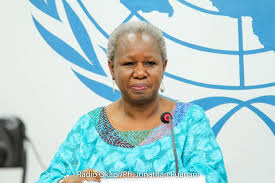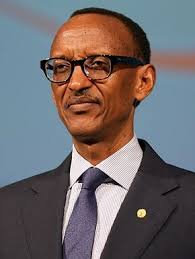
Rwandan-supported rebels currently control significant areas of eastern Congo and pose a threat to extend their offensive westward into two adjacent provinces, according to the leading U.N. official in the conflict-ridden nation, who spoke on Thursday.
During a briefing to the U.N. Security Council regarding what she described as “the alarming situation” in Congo, Bintou Keita highlighted the M23 rebels’ establishment of an administration in South Kivu, along with the appointment of “a mining delegate” in North Kivu. This development underscores the ongoing connections between long-standing conflicts in eastern Congo and the illicit extraction of its mineral wealth.
The U.N. special representative for Congo also addressed the critical plight of tens of thousands of Congolese fleeing the M23 offensive, as well as severe human rights abuses against civilians, which include over 100 summary executions, instances of rape, and the forced recruitment of children.
Despite regional and international initiatives, including a recent agreement between the presidents of Congo and Rwanda in Qatar, Keita noted that the immediate and unconditional ceasefire they sought has yet to be realized.
She urged for the prompt appointment of an African Union mediator to lead ceasefire negotiations. Keita informed the council that M23 has control over substantial portions of North Kivu and South Kivu and poses a threat to expand into Tshopo and Maniema provinces, which are larger and located beyond the western borders of the Kivus.
M23 and its allies have expressed intentions to advance all the way to Congo’s capital, Kinshasa, approximately 1,600 kilometers (1,000 miles) to the east, with movement into Tshopo and Maniema representing a significant initial step.
Keita, who leads the U.N. peacekeeping mission in Congo known as MONUSCO, informed reporters that assessments by professionals on the ground indicate that these two provinces could be the next targets.
M23 is among roughly 100 armed groups competing for influence in the mineral-rich eastern region of Congo, which borders Rwanda.
The ongoing conflict has resulted in one of the most severe humanitarian crises globally, displacing over 7 million individuals.
The origins of the current situation trace back to the 1994 Rwandan genocide, during which extremist Hutu factions targeted the minority Tutsi population, blaming them for the downing of a plane that killed the Hutu president.

Paul Kagame, the current president of Rwanda and a Tutsi who previously served as a military commander in the opposition, is largely recognized for halting the genocide that claimed the lives of more than 800,000 Tutsis and moderate Hutus who attempted to assist them.
In the aftermath, thousands of Hutus sought refuge in neighboring eastern Congo. The M23 rebel group, primarily composed of Congolese Tutsis, captured Goma, the largest city in eastern Congo near the Rwandan border, in November 2012 but retreated due to international pressure.
In July, U.N. experts reported that between 3,000 and 4,000 Rwandan government troops were operating alongside M23 forces in eastern Congo. In January, M23 initiated a significant offensive against Congolese government troops, resulting in their control over much of the Kivu regions.
During a council meeting on Thursday, Congo’s Ambassador Zénon Mukongo Ngay accused Rwanda of violating a ceasefire agreement and reiterated his government’s commitment to any peace initiatives endorsed by the African Union aimed at achieving a political resolution to the conflict.
He stated that both Rwanda and M23 have responded to calls for the withdrawal of all “uninvited” foreign forces from Congo with “violence and terror.” He expressed gratitude to the nations that have imposed sanctions on Rwanda, including the United States, United Kingdom, Germany, Canada, and the European Union.
Rwanda’s Foreign Minister Olivier Nduhungirehe did not confirm the presence of Rwandan troops in Congo. However, he stated that the country’s “defensive measures” would remain in effect “until a credible framework for long-term security guarantees” along the Congo border is established.



